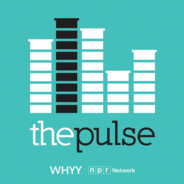It seems like we’re all constantly striving to be more productive — to find the right hacks or systems or habits that will allow us to squeeze more from our days. But is maximum productivity really desirable, or are we missing the bigger picture while running on that treadmill? On this episode, we look at productivity — what works, what doesn’t, and how we can redefine it in a changing world.

Wissenschaft & Technik
The Pulse Folgen
Go on an adventure into unexpected corners of the health and science world each week with award-winning host Maiken Scott. The Pulse takes you behind the doors of operating rooms, into the lab with some of the world's foremost scientists, and back in time to explore life-changing innovations. The Pulse delivers stories in ways that matter to you, and answers questions you never knew you had.
Folgen von The Pulse
182 Folgen
-
Folge vom 28.08.2025Why It’s Time to Rethink Productivity
-
Folge vom 21.08.2025Back to School in a Rapidly Changing WorldIt’s back-to-school time, which, for millions of families across the country, means a return to bedtimes, shopping for school supplies, and frantic efforts by kids to finish their summer reading. On this episode, we explore how our fast-changing world is transforming learning and life inside the classroom, from the lingering effects of the pandemic, to the impact of generative AI tools, to the pressures of “Ivy League fever.”Interviews with host Maiken Scott:When COVID-19 hit the U.S. in March 2020, schools across the country closed down — and stayed closed — as part of an effort to stem the pandemic’s spread. At the time, it seemed like the right move for public health — but according to investigative reporter David Zweig, the basis for those closures was a lot shakier than the public knew, the benefits less clear, and the impact on kids more profound than we imagined. He joins us to discuss his new book, “An Abundance of Caution: American Schools, the Virus and a Story of Bad Decisions.”We talk with education reporter Holly Korbey about how the adoption of new technologies — from Smartboards, to laptops, to ChatGPT — are transforming the classroom, and what science has to say about whether those changes are good or bad for learning. Korbey writes The Bell Ringer, a newsletter on the science of learning.
-
Folge vom 15.08.2025How Scientists Discovered Legionnaires' DiseaseIn the summer of 1976, when 2,000 people came to Philadelphia for a national convention of the American Legion, a strange illness gripped hundreds of attendees, and more than 30 people died. Symptoms included cough, shortness of breath, and fever. Was it a virus, bacteria, some sort of toxin? A major investigation was launched by the CDC — and the gathering in Philadelphia became forever tied to one of the greatest medical mysteries of our time. Almost 50 years later, reports of Legionnaires' Disease are in the news again. Reporter Elana Gordon tells the story of how scientists — with some serious shoe-leather detective work and a scientific breakthrough — tracked down the origin of this mysterious airborne illness. On this episode, we listen back to her reporting from 2016: Audio Time Capsule: The discovery of Legionnaires’ disease.
-
Folge vom 14.08.2025Protecting the People Who Grow Our FoodFarming is a tough gig — physically, and mentally. And it’s only gotten harder in recent years, with the impact of climate change and a shifting political and economic landscape. On this episode, we explore the connection between farming and health, and how these new challenges are affecting the well-being of the people who produce our food.
